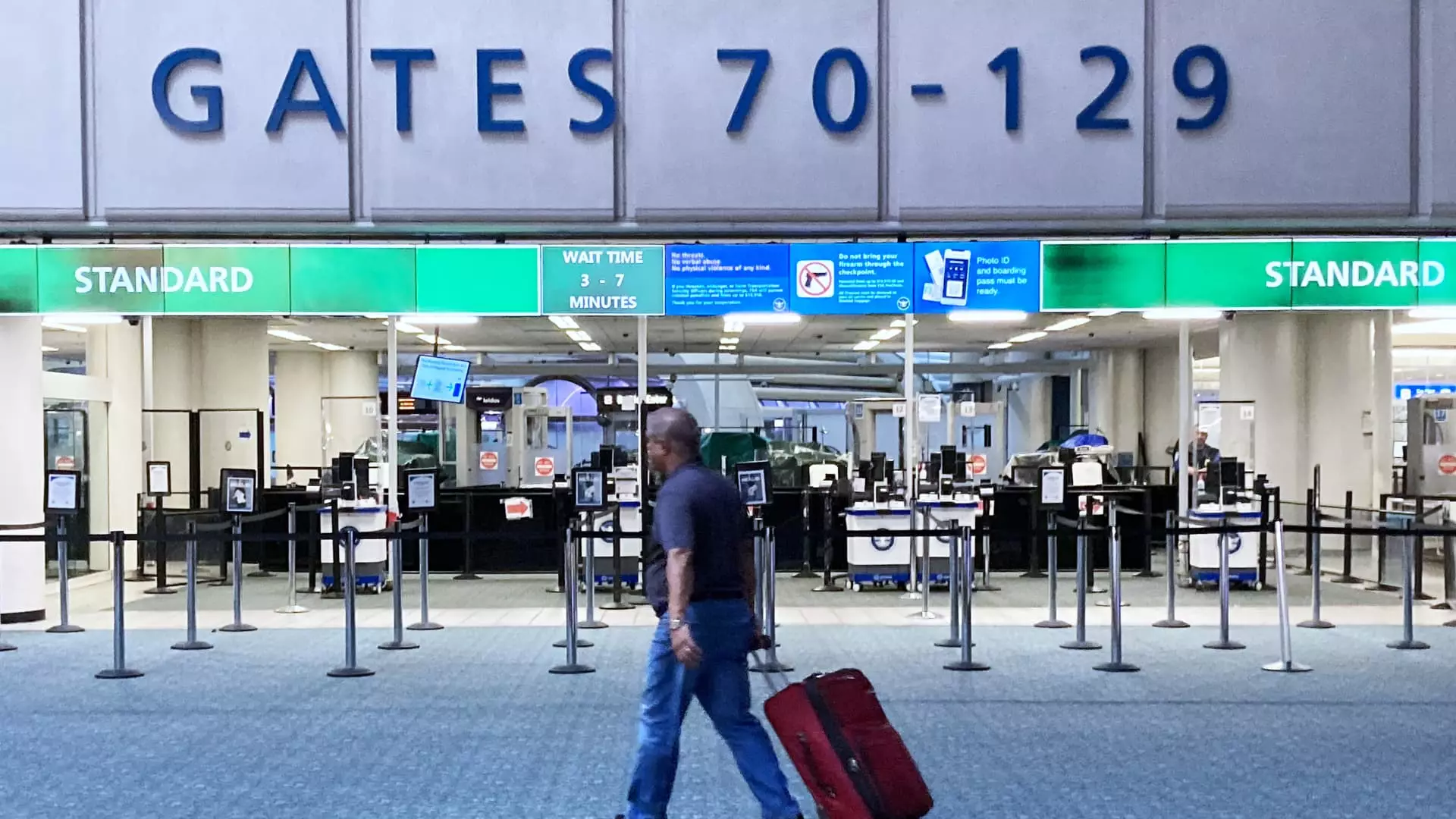As the holiday season approaches, a pressing concern looms over travelers and the airline industry alike: a potential government shutdown. Lawmakers in Congress have failed to reach an agreement on a short-term funding bill, leading to significant anxiety for those planning to take to the skies during the busiest travel period of the year. A deadlocked Congress voted down a crucial bill supported by President-elect Donald Trump, which has resulted in uncertainty surrounding government operations. With a shutdown possible as soon as 12:01 a.m. ET on an upcoming Saturday, the implications for hundreds of thousands of federal employees and the wider travel sector could be devastating.
A shutdown would require numerous federal employees to be furloughed, resulting in an immediate operational challenge for essential services. Among the federal workers deemed essential are over 14,000 air traffic controllers and nearly 60,000 Transportation Security Administration (TSA) agents. Although these individuals are expected to continue working through a shutdown, they would not receive pay, which raises ethical and logistical questions regarding the workforce morale and quality of service during peak travel times. The prospect of enforcing long work hours without compensation could lead to decreased worker efficiency, which in turn may affect the safety and reliability of air travel.
The ramifications of such a shutdown could also impose significant economic burdens. The U.S. Travel Association has projected a staggering loss of approximately $1 billion in travel-related revenue per week should a shutdown occur. Given that commercial airlines are already forecasting one of the busiest holiday seasons on record, the interplay between a government shutdown and holiday travel could cause substantial disruptions.
Effects on Travel Plans and Airline Operations
Travelers should brace themselves for potential chaos at airports. With the TSA preparing for an unprecedented volume of travelers—over 40 million individuals expected to go through screening from Nov. 24 to Jan. 2—airport operations could be strained significantly if federal workers are at any level of diminished capacity. Long lines and delays may become commonplace, as TSA officers balance their responsibilities without pay, potentially affecting their focus and efficiency.
Reports indicate that major airlines, including United Airlines—which anticipates transporting nearly 10 million passengers between December 19 and January 6—might face an uphill battle to maintain operational standards during a shutdown. The air travel sector is not just a matter of logistics but also a cornerstone of the U.S. economy, with millions relying on air travel to visit family and friends during the holidays. If Congress does not act swiftly, many travelers may find their plans disrupted or their experiences marred by stress and confusion at airports.
Reflecting on past government shutdowns, the precedent has already been set for potential complications. The last major shutdown lasted more than a month and had ripple effects on various sectors, with air traffic disruptions and confusion among travelers emblematic of the chaos that ensued. Before previous shutdowns were resolved, many air traffic controllers called in sick, exacerbating delays and congestion in already busy airspace. This history underlines the urgency for policymakers to find common ground and swiftly propose actionable solutions.
The pressing need for a permanent Federal Aviation Administration (FAA) administrator following the impending departure of Mike Whitaker adds another layer of complexity to the situation. Industry leaders, including Delta Air Lines CEO Ed Bastian, have called for the new administrator to prioritize modernization initiatives, which may take a backseat if the agency is embroiled in a shutdown scenario. Effective air traffic control and hiring initiatives should remain on the front burner, particularly during peak travel seasons faced with these uncertainties.
The looming government shutdown presents a cascade of challenges for travelers, airline operations, and federal employees alike. As Congress continues to grapple with funding negotiations, it remains to be seen how the upcoming holiday travel season will be impacted. Travelers and industry stakeholders alike are left watching and waiting, hoping that a resolution can be found before the situation devolves into chaos.

